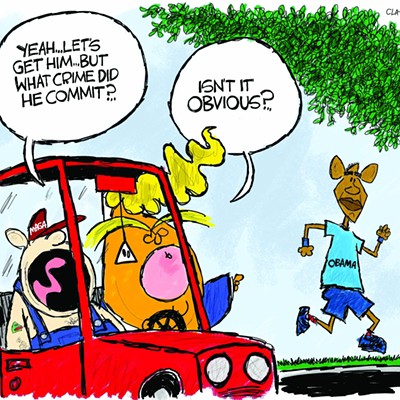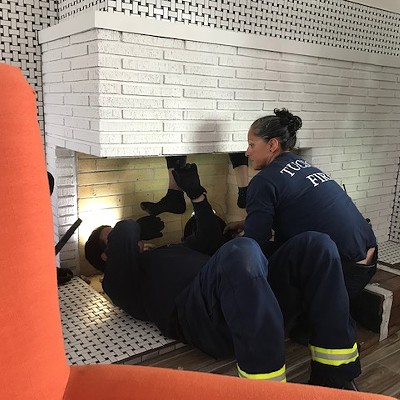Our guide was having fun with us. A group of law students, aware of my concern about the death penalty, invited me to join them on a tour through maximum security and death row in Florence.
One of the students stepped forward. So did I.
"Is this the same chair Walter LaGrand was strapped into?" I asked as I sat down, trying not to tremble.
"Yeah, that's the one!" Our guide smiled broadly. "He was plenty sorry, too! After all the trouble they went through to set up the gas chamber, he changes his mind and wants lethal injection! He just wanted to delay the execution until his lawyers could figure out a way to get him back to Germany alive. Well, the judge didn't fall for it! He got what he asked for in the first place."
In 1999, turning our back on the Vienna Convention on Consular Relations that is designed to protect individuals from inhumane punishment in foreign countries, the people of Arizona executed two German nationals. Our support for the death penalty overpowered our support for personal protection abroad.
Dazed, I followed with the group into the chamber where we had killed Walter's brother, Karl, by lethal injection.
The guide gestured toward the gurney, its straps neatly fastened across the leather cover like a carefully made bed waiting for nightfall. The padded armrests, that so resemble the horizontal bar of a crucifix when extended, were neatly folded down.
"Go ahead and lie on it if you want."
Of the 21 inmates executed in Arizona since 1992, Walter is the only one who chose not to "lie on it." He chose to sit in a chair, gagging and choking. After 18 minutes, he was pronounced dead.
The gutsy student climbed up on the gurney. I chickened out.
I have obviously never "walked in the shoes" of a prisoner sentenced to die, but for a moment, sitting in the gas chamber, I entered the space vicariously between the hell of death row and the final act of brutality.
Still more horrifying than occupying the death chair was the prospect of being strapped down on a bed prepared by peers who were smugly "putting me to sleep" and feeling "civilized." I could not force myself to surrender to that experience even as a tourist.
Perhaps nowhere more than in the death house is it obvious that vengeance turns the "good guys" into "bad guys." In an ironic, dramatic switch of positions, our collective act of ultimate condemnation is the act of homicide that unites us all as killers.
We have been afraid our captives will be set free to kill again, but a survey last month conducted by the Behavior Research Center for Arizona Death Penalty Forum found that when we are informed of the alternative to the death penalty--life in prison without possibility of parole--only 41 percent of us outright support the death penalty. That suggests to me that the people of Arizona want to stop the killing, not add to it.
Robert Comer, found guilty of a heinous crime, is scheduled for execution on May 22. He would be the first executed in our state in 6 1/2 years, and he has asked the court to file no more appeals. He wants to die. The question is, do we want to kill him?










